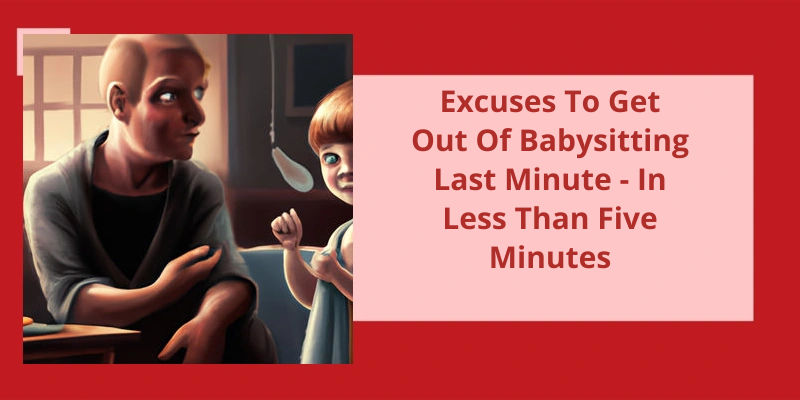Welcome to the quick-start guide on how to navigate the delicate topic of marriage with a partner who seems to get defensive or angry whenever it’s mentioned. Relationships are complex, and when two individuals have different perspectives or expectations regarding marriage, it can create tension and frustration. This guide aims to offer insights, suggestions, and strategies to help you communicate effectively, manage your emotions, and potentially find common ground with your partner. By understanding their perspective, expressing your own feelings, and fostering open dialogue, there’s a possibility of finding a resolution that satisfies both parties. So, let's delve into this topic and equip ourselves with some tools to address this challenging situation.
Why Does My Boyfriend Get Upset When I Bring Up Marriage?
Why does my boyfriend get upset when I bring up marriage? If he becomes angry or defensive when you bring up your future together, this suggests he’s feeling pretty conflicted about it. It probably means that he can sense that you want to talk about marriage, which makes him feel pressured because he doesn’t want to get married. This could be due to a variety of reasons, including his own fears or doubts about commitment, a desire to maintain his independence, or simply not being ready for such a big step in his life. Whatever the underlying reason may be, it’s important to approach the topic with empathy and understanding.
One possible explanation for his reaction could be that he’s afraid of losing his freedom or feeling trapped in a committed relationship. Marriage can be seen as a symbol of permanence and responsibility, which may make him question if he’s ready to give up his current lifestyle. He may also have concerns about how his life would change after getting married, such as financial pressures or having to compromise on personal goals and ambitions. It’s crucial to have open and honest conversations about these fears and expectations to find common ground.
Another possibility is that he’s doubts about the long-term compatibility of your relationship. He might be avoiding the topic of marriage because he’s unsure if he wants to spend the rest of his life with you. These doubts can stem from various factors, such as differences in values, goals, or even incompatible communication styles. It’s vital to have open and honest discussions to address any concerns or uncertainties and to determine if both of you’re on the same page regarding the future of your relationship.
Furthermore, some individuals may simply not feel ready for the commitment that comes with marriage. This might be due to personal reasons, such as unresolved issues from past relationships, a fear of intimacy, or a need to focus on personal growth and development before committing to a lifelong partnership. It’s important to respect his feelings and give him the space he needs to process his emotions and reach a place of readiness, if that’s indeed what he desires.
In some cases, there might be external pressures or societal expectations influencing his reaction. He could be feeling pressured by family members, friends, or society in general to adhere to traditional norms or timelines when it comes to marriage. It’s crucial to differentiate between his own desires and external influences to understand the root of his discomfort and address it accordingly.
Ultimately, the key to addressing this issue is open and honest communication. It’s important to approach the topic of marriage with sensitivity, understanding that everyone has their own timeline and preferences. By creating a safe and non-judgmental space for dialogue, you can delve into his concerns, fears, and desires, and work towards finding a compromise or a solution that’s mutually satisfying for both of you.
Tips for Creating a Safe and Non-Judgmental Space for Dialogue About Marriage
- Encourage open and honest communication
- Listen actively and without judgment
- Create a safe and inclusive environment
- Respect diversity and different perspectives
- Avoid making assumptions or generalizations
- Set ground rules for respectful dialogue
- Empower participants to share their thoughts and feelings
- Foster empathy and understanding
- Address any disrespectful or discriminatory behavior
- Promote active and constructive participation
- Encourage mutual support and collaboration
- Keep discussions focused and on-topic
- Provide resources for further education and support
Open communication and effective conflict resolution are vital elements in any relationship. When disagreements arise between spouses, it’s important to address them constructively. Ignoring the issue or allowing resentment to build will only hinder the growth of the relationship. In such situations, it’s essential to listen to your partner’s perspective, practice empathy, and approach the discussion with respect. By actively seeking a resolution together, couples can navigate through their differences, ultimately strengthening their bond.
What to Do When You Don’t Agree With Your Husband?
When you find yourself in a scenario where you don’t agree with your husband, it’s important not to avoid the issue. Ignoring it will only lead to further misunderstandings and build-up of negative emotions. Instead, address the situation head-on and initiate a conversation with your partner. By doing so, you create an opportunity for open and honest communication.
Listening is a key element in resolving disagreements. Take the time to truly hear and understand your husbands perspective. This doesn’t mean you’ve to agree with him, but by actively listening, you demonstrate respect and show that you value his opinion. It also helps prevent misinterpretations and can uncover underlying reasons behind his viewpoint.
Practicing empathy is crucial in maintaining a healthy relationship. Put yourself in your husbands shoes and try to understand his feelings and motivations. By doing this, you can develop a deeper sense of compassion and find common ground. Empathy allows both of you to feel understood and fosters an environment where compromise becomes more achievable.
No matter how strongly you disagree with your husband, it’s vital to remain respectful. Avoid name-calling, belittling, or using hurtful language. Instead, express your concerns in a calm and assertive manner. Remember that the goal isn’t to win an argument but to find a resolution that satisfies both parties.
Seeking a resolution should be the ultimate objective when disagreements arise. Brainstorm together and explore different possibilities. Find areas of compromise and determine if there are any shared interests or goals that can be used as a starting point for a solution. Keep in mind that finding common ground may take time, patience, and willingness to work together.
Managing Disagreements in a Blended Family: If You and Your Husband Have a Blended Family, Disagreements May Involve Different Parenting Styles or Conflicting Priorities. Exploring Strategies for Managing Disagreements Within a Blended Family Context Can Be Helpful for Maintaining Harmony and Cohesiveness.
- If you and your husband have a blended family, disagreements may involve different parenting styles or conflicting priorities.
- Exploring strategies for managing disagreements within a blended family context can be helpful for maintaining harmony and cohesiveness.
It’s important to understand that anger in relationships is a complex issue with various underlying causes. While it might be tempting to solely blame yourself for your husband’s quick temper, it’s crucial not to overlook other potential factors contributing to his anger. In this article, we will explore potential reasons why your husband gets mad at you so quickly and offer some suggestions for addressing and managing this challenging situation.
Why Does My Husband Get Mad at Me So Quickly?
If your husband gets mad at you quickly, it can be a challenging and frustrating situation to navigate. Understanding the underlying reasons behind his anger can help you address the issue more effectively. It’s important to note that there can be various factors contributing to his quick temper.
One possible reason for your husbands anger could be a sense of insecurity within the relationship. If he perceives threats to the stability or future of your marriage, it might trigger feelings of frustration or fear. This can make him more prone to becoming angry and defensive when you bring up topics such as marriage or commitment.
It’s essential to recognize that anger is often a response to underlying emotions. By acknowledging and validating his feelings, you can create a more open and supportive environment for communication.
Lastly, it’s important to take care of yourself in the process. Dealing with someone who frequently gets angry can be emotionally draining. Consider seeking support from trusted friends, family, or a therapist who can help you navigate this challenging situation. Remember, your happiness and well-being are equally important.
How to Effectively Communicate With a Partner Who Has Anger Issues
Effective communication is crucial when dealing with a partner who’s anger issues. Here are some tips to help you navigate these conversations:
1. Choose the right time and place: Find a calm and comfortable setting where you can both talk without distractions or interruptions.
2. Use “I” statements: Begin your sentences with “I feel” or “I think” to express your perspective without sounding accusatory. This can help prevent your partner from becoming defensive.
3. Active listening: Show empathy and understanding by actively listening to your partner. Avoid interrupting or dismissing their feelings, even if you disagree.
4. Take breaks if necessary: If the conversation becomes heated, it’s important to take a step back and give each other some space. Resume the discussion when both parties are calmer and ready to listen.
5. Seek professional help: If your partner’s anger issues persist and impact your relationship, consider seeking the assistance of a therapist or counselor. They can provide valuable tools and techniques for managing anger and improving communication.
Remember, open and honest communication is the key to resolving conflicts and building a stronger relationship. By approaching the topic with understanding and patience, you can work together to address your partner’s anger issues.
This desire for control could stem from a variety of factors, such as fear of losing power or a need for validation. It’s essential to understand the root cause of this behavior and address it in a healthy and productive manner. In this article, we will explore why your husband might get so angry when you disagree with him and provide some strategies to effectively communicate and navigate disagreements in your relationship.
Why Does My Husband Get So Angry When I Disagree With Him?
It’s important to understand that some individuals feel threatened or powerless when faced with opposing perspectives. They might perceive disagreement as a challenge to their authority or a personal attack on their beliefs. This defensive reaction often stems from deep-seated insecurities or a fear of losing control. Consequently, they resort to anger as a defense mechanism, attempting to intimidate or silence you.
In such situations, it’s crucial to approach your spouse with patience and empathy. Instead of pitting yourself against them, focus on fostering open and respectful communication. Try to create a safe space where both of you can express your thoughts without fear of judgment or anger. Validate their feelings and actively listen to their concerns, emphasizing that your intention isn’t to confront or undermine them.
Additionally, it might be helpful to explore the underlying reasons behind their need for control. Understanding their perspective can help you address their insecurity or fear more effectively. Encourage them to reflect on why they respond with anger when faced with disagreement, and gently suggest alternative ways to express their emotions. Together, you can work towards finding healthier patterns of communication and compromise.
Remember, you can’t change your spouses behavior alone. It’s crucial for both of you to be committed to personal growth and a willingness to meet halfway. Consider seeking professional help, such as couples therapy, to navigate these challenges effectively. A trained therapist can guide you through techniques and strategies to foster healthier communication and resolve conflicts in a constructive manner.
Ultimately, addressing and resolving this issue requires time, patience, and understanding from both you and your spouse. By cultivating a foundation of trust, empathy, and open-mindedness, you can create a more harmonious and fulfilling relationship, where differing opinions are valued and respected.
The Potential for Toxic or Abusive Behavior in Relationships and How to Identify and Address It
- Recognizing signs of toxic or abusive behavior in relationships
- Understanding the different forms of abuse (physical, emotional, verbal, etc.)
- Signs of controlling and manipulative behavior
- Educating yourself on healthy boundaries and communication
- Seeking support from friends, family, or professionals
- Creating a safety plan if you feel unsafe
- Learning to trust your instincts and prioritize your well-being
- Understanding the cycle of abuse and how it impacts victims
- Empowering and believing in yourself
- Ending an abusive relationship and seeking help
Conclusion
In conclusion, navigating the complexities of discussing marriage with your partner requires tact, understanding, and effective communication. Remember, every relationship is unique, and it's important to respect your partner's feelings and choices. However, it's equally vital to prioritize your own needs and aspirations. Reflect on the reasons why you want to discuss marriage and the impact it’s on your future. When broaching the topic, approach it with sensitivity, choose an appropriate time, and create a safe space for open dialogue. Listen to your partner's concerns and fears, and attempt to understand their perspective. Ultimately, only you can determine what’s best for your own happiness and fulfillment. Trust your instincts and have faith in your ability to find common ground with your partner, leading to a shared vision of your future together.






